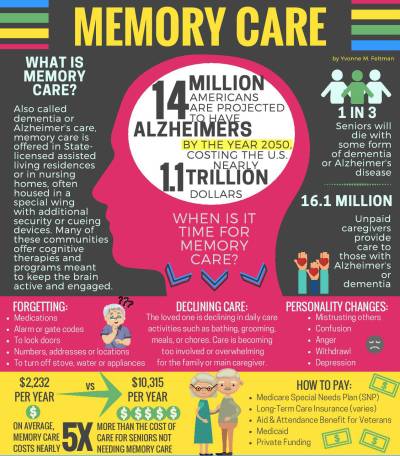Boutique Memory Care Communities That Offer a Homelike Atmosphere
Wiki Article
Everything About Memory Treatment Providers: Why Tiny Memory Treatment Homes Are a Great Selection
Memory treatment solutions play an important duty in sustaining individuals with Alzheimer's and dementia. Tiny memory care homes stand apart for their tailored technique and intimate setting. With reduced staff-to-resident ratios, these homes promote more powerful connections and tailored care. Locals profit from improved social communications and a secure environment. As families check out choices, recognizing the unique advantages of tiny memory treatment homes ends up being important. What aspects should be taken into consideration when picking the right home?Recognizing Memory Treatment Services
While many may recognize with general elderly treatment alternatives, understanding memory treatment services is important for families dealing with the challenges of cognitive decline. Memory care especially provides to people with problems such as Alzheimer's illness and various other types of mental deterioration. These solutions give an organized atmosphere that concentrates on enhancing the lifestyle for citizens via specialized treatment and support.Memory care facilities are developed to guarantee safety and security, frequently including secured atmospheres to stop straying. Educated employee are offered around the clock to help with everyday tasks, medication management, and personal treatment. Additionally, memory treatment programs often include cognitive stimulation activities, customized to engage homeowners and advertise mental wellness. Family members can profit from understanding these solutions, as they enable notified choices concerning their liked ones' treatment, guaranteeing that their specific demands and preferences are dealt with in a helpful and caring fashion.The Advantages of Little Memory Treatment Residences
Small memory care homes use unique advantages that can considerably enhance the lifestyle for homeowners with cognitive disabilities. One considerable benefit is the intimate environment, which permits personalized interactions among staff and citizens. This smaller setting cultivates significant connections, reducing sensations of isolation and anxiety typically experienced by people with memory issues.Additionally, the reduced staff-to-resident proportion in little memory care homes makes it possible for caretakers to supply more attentive guidance and assistance. This strategy not just improves safety however likewise advertises a complacency for the residents.Moreover, tiny memory care homes can adjust swiftly to the special needs and preferences of each citizen, enabling an extra homelike ambience. Such an environment can motivate social involvement and involvement in activities, ultimately enhancing the day-to-day experiences of those dealing with cognitive problems.Personalized Treatment Plans for Homeowners
Personalized treatment plans are vital in memory treatment homes, as they provide to the unique needs and choices of each citizen. These plans start with comprehensive evaluations performed by experienced professionals, that review cognitive abilities, clinical history, and individual rate of interests. This tailored method guarantees that care is not just efficient but also respectful of each individual's self-respect and autonomy.Moreover, individualized treatment plans are adaptable, permitting changes as residents' requirements advance in time. This flexibility cultivates a complacency and experience, which is crucial for individuals living with memory difficulties. Caregivers are educated to apply these plans continually, offering support that straightens with the locals' routines and preferences.Ultimately, individualized care plans enhance the quality of life for homeowners by promoting involvement, well-being, and independence, making them a basic aspect of memory treatment solutions in small memory treatment homes.Producing a Home-Like Environment
Creating a home-like setting is essential for promoting comfort and familiarity in memory care setups, as it significantly influences residents' psychological well-being. Small memory treatment homes commonly prioritize tailored touches, such as warm color palettes, family pictures, and familiar furnishings arrangements, which aid residents feel a lot more at ease. Incorporating components similar to a conventional home, like comfortable living spaces and common locations, urges a feeling of belonging.Moreover, making use of all-natural light and outdoor areas can improve the ambience, promoting leisure and tranquility. Personnel participants play a significant duty in keeping this environment by involving with residents in a thoughtful fashion, treating them like family members. Regular activities, such as cooking or horticulture, can likewise add to a home-like feel, using opportunities for residents to take part in purposeful experiences. Overall, producing a supporting environment sustains cognitive feature and psychological security, making it a vital element of memory care services.
Enhanced Social Communication and Area
Boosted social interaction and area are essential elements of memory care solutions. By cultivating personalized social involvement and developing a family-like ambience, these services advertise significant connections amongst homeowners. Team activities and events further motivate involvement, helping individuals really feel more included and supported.Individualized Social Engagement
While social communication is crucial for general health, several individuals with memory impairments usually struggle to engage meaningfully with others. Customized social engagement in memory treatment homes addresses this difficulty by developing tailored activities that accommodate homeowners' one-of-a-kind interests and capabilities. By concentrating on individual choices, caretakers can cultivate links that resonate deeply with each individual. Tasks such as art therapy, songs sessions, and directed conversations advertise cognitive stimulation and emotional expression. Furthermore, small group settings encourage friendship and permit even more intimate interactions, enhancing sensations of belonging. This technique not only deals with sensations of isolation however also equips citizens to maintain a feeling of identity, eventually adding to improved psychological wellness and top quality of life.Family-like Ambience
In a memory care setup, fostering a family-like environment significantly improves social interaction and develops a sense of neighborhood among locals. Smaller memory care homes usually prioritize intimate environments, permitting citizens to develop closer connections with one an additional and personnel. This nurturing environment promotes count on, which personalized memory care is crucial for individuals with memory problems. Residents are more probable to engage in conversations and share experiences, developing an encouraging network that minimizes feelings of isolation. The familiarity of common spaces and routines adds to a feeling of belonging, even more encouraging social communication (personalized memory care). In such setups, psychological bonds flourish, causing enhanced general wellness and a better of life for citizens as they browse their day-to-day experiences with each otherTeam Activities and Occasions

Safety And Security and Protection Features in Small Houses
Lots of small homes developed for memory care integrate essential safety and safety attributes to guarantee the well-being of locals. These homes typically use protected access and leave factors to stop wandering, a typical concern among individuals with memory impairments. Additionally, monitoring systems and alarm mechanisms improve surveillance, ensuring that personnel can promptly react to any kind of unusual activities.Interior formats are customized for safety and security, with lessened threats such as clutter-free pathways and sharp edges. Handrails and non-slip flooring are usually mounted to reduce the threat of falls. Team member are learnt emergency protocols, guaranteeing they are prepared for numerous situations.Moreover, personalized care strategies might include analysis of private safety requirements, offering customized services for each and every homeowner. Overall, these safety and security and security features develop a caring atmosphere where residents can flourish while maintaining their dignity and self-reliance.Just how to Pick the Right Memory Care Home
Exactly how can families guarantee they choose the most appropriate memory treatment home for their loved ones? The choice needs careful consideration of several aspects. Initially, family members ought to examine the center's personnel certifications and training, making sure that caregivers are experienced in handling memory-related problems. Next off, it's crucial to analyze the home's setting, concentrating on security features and whether it fosters a sense of community and belonging. Seeing the facility can give insight into day-to-day tasks and the social atmosphere, which are vital for mental excitement and emotional health. Additionally, households need to ask about the treatment strategies provided, guaranteeing they are tailored to individual needs. Lastly, considering the home's location and accessibility for household visits can add to a smoother shift. By addressing these facets, families can make an informed decision that prioritizes their enjoyed one's comfort and quality of life in a memory care setup.Frequently Asked Inquiries
What Certifications Should Staff Members in Memory Treatment Residences Have?
Team participants in memory treatment homes ought to have pertinent certifications, experience in mental deterioration treatment, strong communication skills, and empathy. Continuous training in behavioral management and therapeutic treatments boosts their capability to sustain locals effectively.Exactly How Do Memory Treatment Provider Differ From Typical Assisted Living?
Memory treatment services concentrate particularly on individuals with memory disabilities, supplying specific support and organized environments. On the other hand, standard assisted living uses basic support with everyday tasks, lacking the customized strategy needed for those with cognitive challenges.What Kinds of Activities Are Supplied in Memory Treatment Houses?
Memory care homes usually use a selection of activities designed to involve locals. Common options include art treatment, music sessions, cognitive video games, physical exercises, gardening, and social occasions, all aimed at boosting health and cognitive function.Can Locals Bring Their Own Valuables to Memory Care Houses?
Residents can commonly bring their very own belongings to memory care homes, permitting them to customize their home - personalized memory care. This method aids produce an acquainted environment, promoting comfort and a sense of identification for the individuals
Just How Are Relative Associated With the Treatment Process?
Household members play an essential duty in the treatment procedure, usually participating in decision-making, attending care meetings, and offering emotional support. Their involvement fosters a collective environment, improving the citizen's general health and quality of life. While several may be acquainted with basic senior treatment alternatives, understanding memory care services is essential for households dealing with the obstacles of cognitive decline. These services offer an organized setting that concentrates on enhancing the high quality of life for homeowners through specialized care and support.Memory treatment facilities are created to guarantee security and safety, often including secured settings to prevent straying. Individualized care strategies are essential in memory care homes, as they provide to the distinct demands and preferences of each citizen. Team participants in memory treatment homes must possess pertinent qualifications, experience in dementia treatment, strong interaction skills, and empathy. Memory care solutions focus particularly on people with memory problems, giving customized assistance and organized settings.Report this wiki page